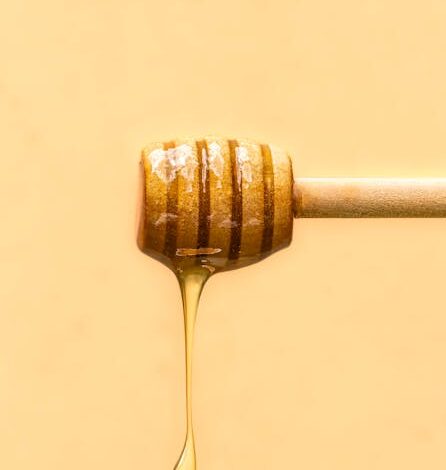A Sweet History: Beekeeping in Egypt

In the vibrant markets of Cairo, you’ll find glass jars filled with amber and golden honey, each one showcasing one of Egypt’s most cherished natural products. These aren’t just sweeteners; they represent a legacy of apiculture that stretches back millennia.
A Sweet History: Beekeeping in Egypt
From the clover fields of the Nile Delta to the citrus groves of the Nile Valley, each jar tells a story of Egypt’s lands and long-standing apiculture traditions. Beekeeping has been practiced in Egypt since the Fifth Dynasty, Old Kingdom, and remains a central part of rural livelihoods.
Generations of Egyptian beekeepers have refined specialized methods to align with flowering seasons and sustain steady yields. This dedication to the craft is reflected in the sheer number of people involved in the industry.
As of 2022, the number of beekeepers in Egypt was reported at about 270,000, and the number of apiaries was 10,220. To put that in perspective, Saudi Arabia has 16,000 beekeepers as of 2023, Turkey reportedly has about 80,000 beekeepers as of February 2025, and the United States has between 115,000 and 125,000 beekeepers as of 2024. This robust community ensures the continuation of Egypt’s honey heritage.
Egypt’s honey production is not just about quantity; it’s also about quality, which is directly linked to the country’s diverse flora.
The Rich Flora Fueling Egyptian Honey Production
Egypt’s varied flora offers abundant nectar sources, supporting the production of high-quality honey. This abundance is what allows Egyptian beekeepers to create a range of distinctive honey varieties, each with its unique flavor profile and characteristics. The natural environment plays a pivotal role in ensuring a consistent and high-quality honey yield each season.
With around 300 types of honey worldwide, Egypt’s most famous types include Clover Honey, made from Egyptian clover, widely consumed for its balanced sweetness; Citrus Honey from orange, lemon, and mandarin blossoms, which provides a light, aromatic flavor. The specific floral sources are what give these honeys their unique characteristics.
Imagine the aroma of orange blossoms captured in a jar – that’s the essence of Egyptian Citrus Honey. Or the subtle sweetness of Clover Honey, a staple in many Egyptian households. These honeys are more than just sweeteners; they are a taste of Egypt’s natural bounty.
The commitment of Egyptian beekeepers, combined with the country’s rich flora, ensures that Egypt continues to nurture its honey heritage.
Supporting Sustainable Beekeeping Practices
The future of Egyptian honey depends on sustainable beekeeping practices. It’s essential to protect bee populations and their natural habitats to ensure the continued production of high-quality honey.
Here are a few ways to support sustainable beekeeping:
Choose Local Honey
When purchasing honey, opt for locally sourced options. This supports local beekeepers and reduces the environmental impact associated with transportation.
Educate Yourself
Learn about the importance of bees and the challenges they face. Spread awareness among your friends and family to promote bee-friendly practices.
Support Bee-Friendly Agriculture
Choose products from farms that prioritize bee health and avoid the use of harmful pesticides. Look for certifications or labels that indicate bee-friendly practices.
Plant Bee-Friendly Flowers
Create a bee-friendly garden by planting a variety of flowers that provide nectar and pollen throughout the year. Native plants are often the best choice.
By taking these steps, you can contribute to the sustainability of Egyptian beekeeping and ensure that future generations can enjoy the sweet taste of Egyptian honey.
Conclusion
Egypt’s honey heritage is a testament to the country’s rich flora, the dedication of its beekeepers, and the ancient traditions that have been passed down through generations. By appreciating and supporting this heritage, we can ensure that the sweet taste of Egyptian honey continues to delight for years to come. So, next time you reach for a jar of honey, remember the story it tells – a story of Egypt’s lands, its people, and its enduring commitment to the art of beekeeping. Discover the unique flavors of Egyptian honey and support the beekeepers who work tirelessly to bring this natural treasure to your table.





